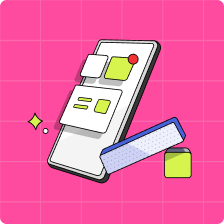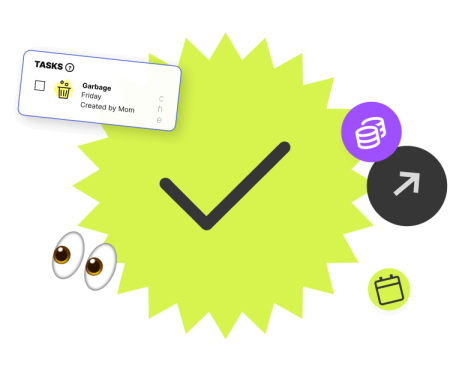“You spent all your birthday money on what, now?”
If you’ve got a child with Attention Deficit Hyperactivity Disorder (ADHD), or suspect you might, chances are you’ve felt a mix of compassion and frustration when it comes to watching them plan for or manage their resources. Teens with ADHD overestimate how much money or time they have, and often make quick choices without thinking through their long-term impacts fully. While as parents, we know our goal is to raise functioning, productive adults, raising a kid with ADHD or ADD tends to have unique considerations.
Characterized by inattentiveness, impulsivity, and hyperactivity, ADHD challenges can present very differently depending on the kid. Inattentive ADHD (often called ADD) is a subtype of ADHD and manifests as forgetfulness, disengagement, or distractibility. In kids and teens, it may resemble a learning disorder.
While school is often the first place ADHD makes itself known, if it’s causing a problem somewhere, it’s likely affecting other areas as well. “ADHD doesn’t only affect school performance,” says occupational therapist and ADHD coach, Aliza Green. “It influences every aspect of life, including money management.” According to Green, ADHD is not just about having difficulty paying attention; it encompasses a range of cognitive functions that are crucial for success in various areas of life. “Individuals with ADHD struggle with executive functions such as working memory, cognitive flexibility, and inhibitory control.”
So how do you teach a distractible kid with poor executive function about money and get it to stick? In this article, we’ll explore the unique money-related struggles kids and teens with ADHD face and provide practical tips to help them learn to manage their finances effectively. Whether it’s impulse spending, learning to save or sticking to long-term financial goals, here’s how to help your ADHD child build financial literacy skills.

What are some of the money challenges for kids with ADHD?
Kids and teens with ADHD may encounter several challenges when it comes to managing money. According to Green, who coaches teens and young adults with ADHD, “The core challenges I observe in young adults with ADHD are impulsivity, forward planning difficulties, and weak episodic memory, which hinders their ability to learn from past experiences.” Kids with ADHD live in the now, says Green, and remembering long-term goals like saving can be challenging when they seem so far away.
Some common money challenges for kids with ADHD include:
Decision-making and planning challenges
Kids with ADHD may struggle with planning and decision-making, especially in complex money-related choices. They may have trouble setting long-term goals and creating a structured roadmap or savings plan to achieve them. For example, spending money on a single expensive item versus saving for multiple items.
Read more: How to help kids and teens set and achieve goals.
Impulse spending
Individuals with ADHD often struggle with impulsivity, making it challenging for them to control their urges in the moment and make well-thought-out decisions with what’s best for their future in mind. Impulse spending is a common issue, where resisting the urge to buy unnecessary items and considering the consequences is overridden by the subconscious desire to chase a feeling. For instance, your kid may buy toys, games, or gadgets impulsively due to excitement, often leading to regret or financial strain.
Read more: How to help kids and teens avoid impulse buying.
Forgetfulness
Children with ADHD may have difficulty remembering to save money or keep track of their belongings, leading to lost money or misplaced items they purchased. And while we’ll talk about the benefits of scheduled payments later on, ADHD forgetfulness means they might not have enough money in their account, which could lead to NSF or overdraft fees.
Time perception
Children with ADHD often have an altered perception of time, also referred to as time blindness, leading to difficulties in understanding the value of money saved over an extended period. They typically prioritize immediate rewards over long-term financial goals and, paired with impulsivity, this can lead to financial short-sightedness.
Inconsistent focus on tasks
ADHD can cause difficulties in staying focused and completing tasks. As a result, your teen may start money-related projects, such as creating a savings plan, but leave them unfinished. Saving money requires consistency and patience, which can be challenging for kids and teens with ADHD, as they might quickly lose interest in saving over time.
Why is it important for kids and teens with ADHD to learn about money?
Teaching children about money management is crucial for their future financial well-being. Managing money is crucial for all children, but it holds even greater significance for kids and teens with ADHD. According to a 2022 YouGov study in the UK, 65 per cent of people with ADHD say the condition makes managing their finances more difficult. The struggle is due mainly in part to neurodivergent traits, meaning the brains of kids with ADHD are simply “wired” differently than a neurotypical person.
However, according to Green, financial literacy can be taught, and with the right strategies, young adults with ADHD are capable of developing healthy financial habits and achieving greater financial independence.

How to have the money talk with ADHD kids and teens
When it comes to having the money talk with kids and teens with ADHD, honesty and self-reflection are key, says Green.
Get honest
“The first thing I would say to parents is to examine their own relationship with money,” Green recommends. “How do you approach money? How do you manage your money? What’s your anxiety level around money? How do you budget? Really get honest with yourself.”
Read more: 10 common money mistakes parents make and how to avoid them.
Collaborate and communicate
Once you’ve gotten clear on your own financial literacy, have open conversations with your child about money. Talk about budgeting, priorities, and savings in a way that matches their developmental stage. Collaboratively create rules together, suggests Green. This may include setting limits on debit cards, having access to your child’s account to see their spending, and engaging in regular check-ins to offer support and guidance without shame or judgment.
Avoid shaming
“It’s essential for educators and parents to understand that punishment is not the most effective way to address the behavioural challenges that come with ADHD,” advises Green. “Instead, a supportive and structured environment can make a world of difference.” Green encourages parents to approach financial slip-ups with compassion. This creates a safe space for your child to discuss mistakes so they can learn from them.

8 tips to help kids and teens with ADHD manage their money
“Parents can play a crucial role in teaching money management skills to children with ADHD, starting with simple concepts like saving and budgeting,” says Green. Here are some practical tips to get you started:
1. Have a visual plan
“Visual aids play a significant role in helping teenagers with ADHD develop better money habits,” explains Green. Utilize charts, graphs, or a telethon-style thermometer to track savings progress, expenses, and financial targets. A visual plan posted in a central spot serves as a reminder and motivator.
2. Gamify savings
Incorporate technology to create savings challenges or goals with rewards, Green suggests. This makes money management fun and engaging for kids with ADHD.
Read more: How kids and teens can gamify their savings.
3. Set up automatic payments
Help your child avoid missed payments or late fees by setting up automatic payments for recurring bills, reducing the risk of financial disarray.
4. Set up reminders and notifications
Encourage your teen to set calendar or device reminders for payment dates, ensuring they don’t forget critical financial responsibilities.
5. Encourage regular check-ins
Set aside a specific time each week to discuss and practice money management. It could be a short session where you review their allowances, expenses, and savings. “Scheduling regular money discussions provides a platform to review progress, identify challenges, and plan for the upcoming week,” says Green. She suggests parents not only reinforce positive money habits but adjust as needed.
6. Teach decision-making skills
Involve your child in financial discussions and age-appropriate purchasing choices, emphasizing critical thinking and evaluating needs versus wants.
7. Make money tangible
ADHD kids benefit from a tangible representation of money, such as an envelope system or visual bank app like Mydoh, showing transactions in an easy-to-use interface.
8. Use a prepaid card
Introduce your child to prepaid cards designed for teenagers, like the Mydoh Smart Cash Card, which offers a safe and controlled environment for managing money while teaching financial independence.
You’re on track to raise money-smart teens
“With the right strategies and intentional parenting, young adults with ADHD can develop healthy financial habits and achieve greater financial independence,” says Green. Change takes time, so parents should be patient and intentional with their approach to raising money-smart kids with ADHD, she adds.
“This is not a one-time conversation, but an ongoing process to build good money habits and financial responsibility,” Green reminds us.
Download Mydoh and embark on this transformative journey of financial education with your kids and teenagers.
This article offers general information only and is not intended as legal, financial or other professional advice. A professional advisor should be consulted regarding your specific situation. While the information presented is believed to be factual and current, its accuracy is not guaranteed and it should not be regarded as a complete analysis of the subjects discussed. All expressions of opinion reflect the judgment of the author(s) as of the date of publication and are subject to change. No endorsement of any third parties or their advice, opinions, information, products or services is expressly given or implied by Royal Bank of Canada or its affiliates.








